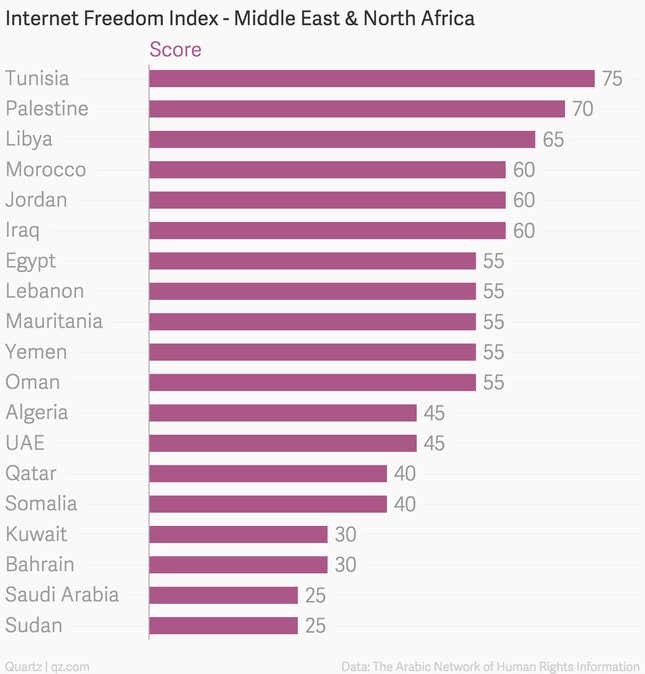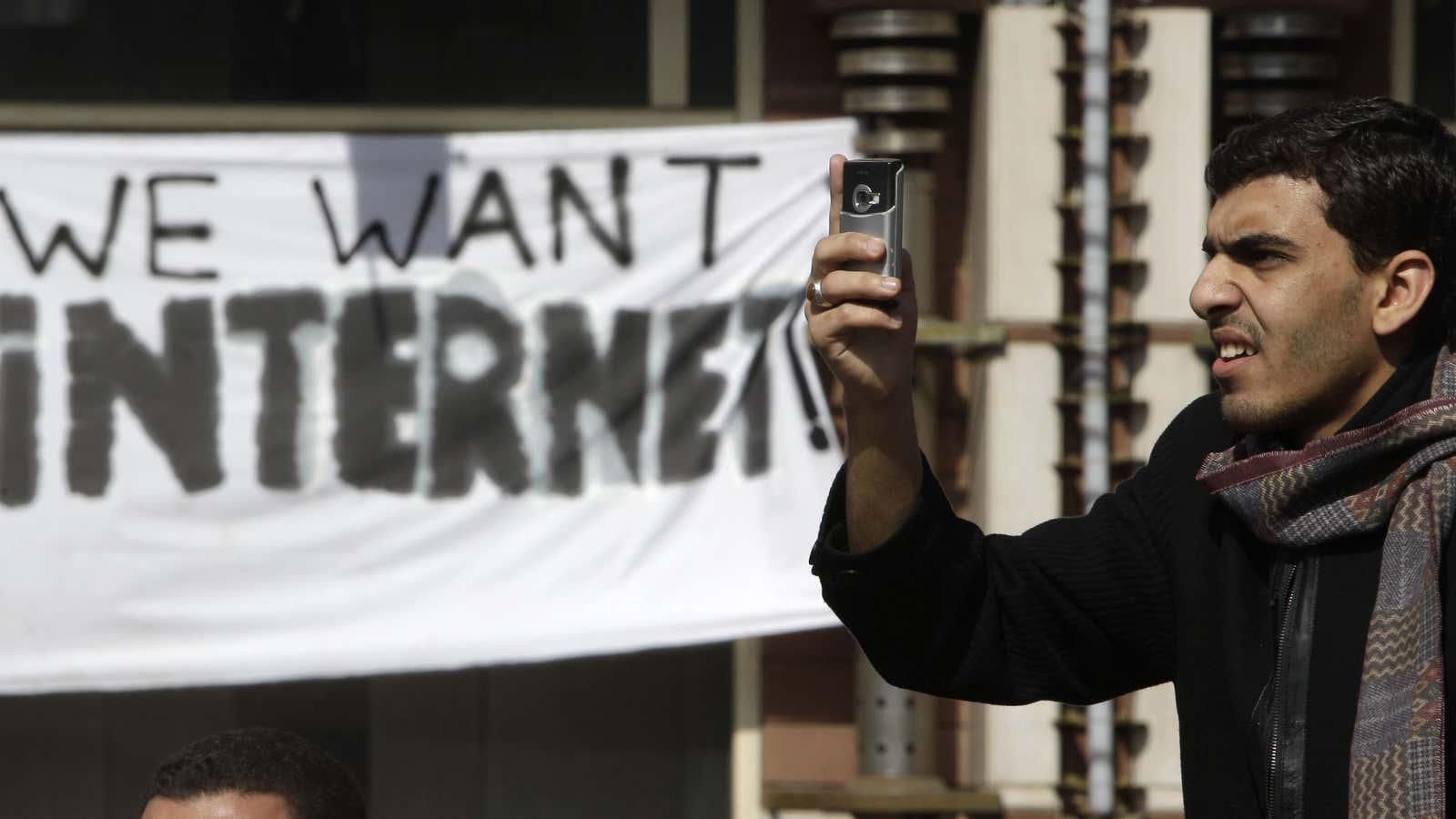Even after the promise of 2010-12’s Arab Spring freedom uprising and the expansion of Internet usage in the region, an offending tweet or Facebook post could still have you arrested and charged in many Arab countries, says a new report.
The 96-page report #Turn_around_and_go_back: Internet in the Arab world, by the Cairo-based The Arab Network for Human Rights Information, estimates that there are 157 million internet users in the region stretching from Mauritania to Yemen. About half of these users, around 78 million, have Facebook accounts and Twitter is rapidly gaining popularity as a social media platform with 7 million users in Saudi Arabia and 4 million in Egypt respectively.
Social media played an important role in the Arab Spring uprising by young people across the region but increased access hasn’t led to increased freedom say experts.
Gamal Eid, executive director of ANHRI told Quartz, “Overall, from the perspective of governments trying to control online activities the situation is bleak but if we look at the audience it’s larger and sharper in its dissent”.
The report was based on an Internet Freedom Index. On a sliding scale of 100 (free) to 0 (unfree), 18 countries are scored based on criteria such as arrest of cyber activists, protection of privacy, blocking websites, telecommunications infrastructure and respecting freedom of expression.
Tunisia comes out on top with a score of 75 and Sudan is last scoring 25

As the report’s authors see it, the “Internet is one of the significant means to confront repression and support democracy” in a region where institutional change has taken a backseat to security concerns.
Even though Tunisia is ranked highest, that has not stopped authorities from arresting blogger Yassine Ayari in January of this year for Facebook posts that were deemed too critical of the army and military high command. He was released a few weeks ago after three months in jail.
Sherif Azer, a doctoral researcher at York University in the UK, who examines cyberactivism in Egypt and the region at large, explained to Quartz “currently Arab regimes are politically avenging what happened to them four years ago, even the ones that weren’t toppled”
For example, Bahraini human rights activist Nabeel Rajab is facing yet another trial this week over a single tweet that authorities regard as tendentious in its criticism of state institutions. Meanwhile, the Moroccan government recently filed a lawsuit against a digital rights group critical of the government’s online surveillance and spying on dissenting activists and journalists.
“If you look at Kuwait which was a leader in press freedoms along with Lebanon a few years ago, it now arrests more Twitter users than any other country in the world” Eid explained. However, he is hopeful that “even though cyber repression is at its highest level, it’s a losing battle for governments because of the sheer number of young users online and who can post their thoughts instantaneously”.




